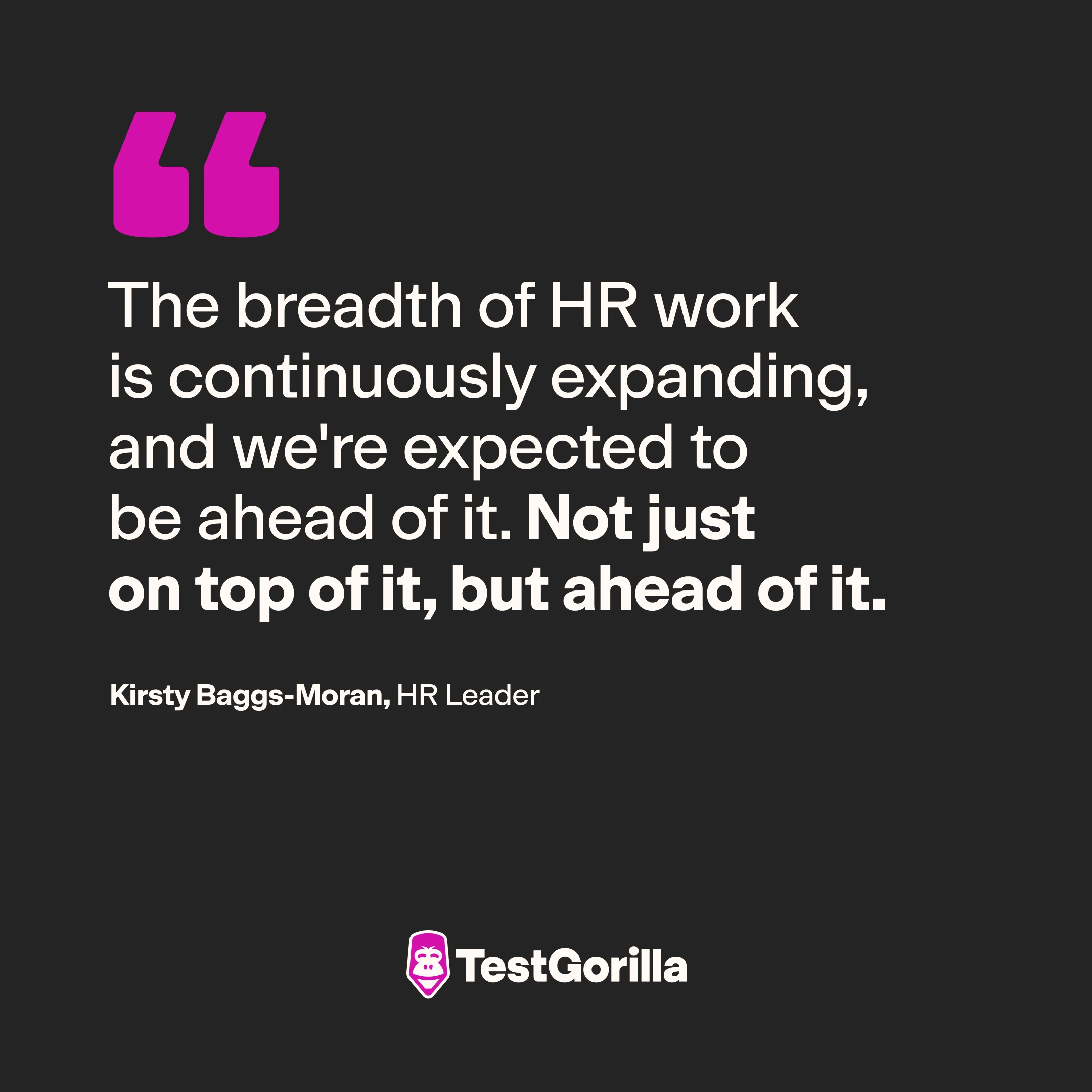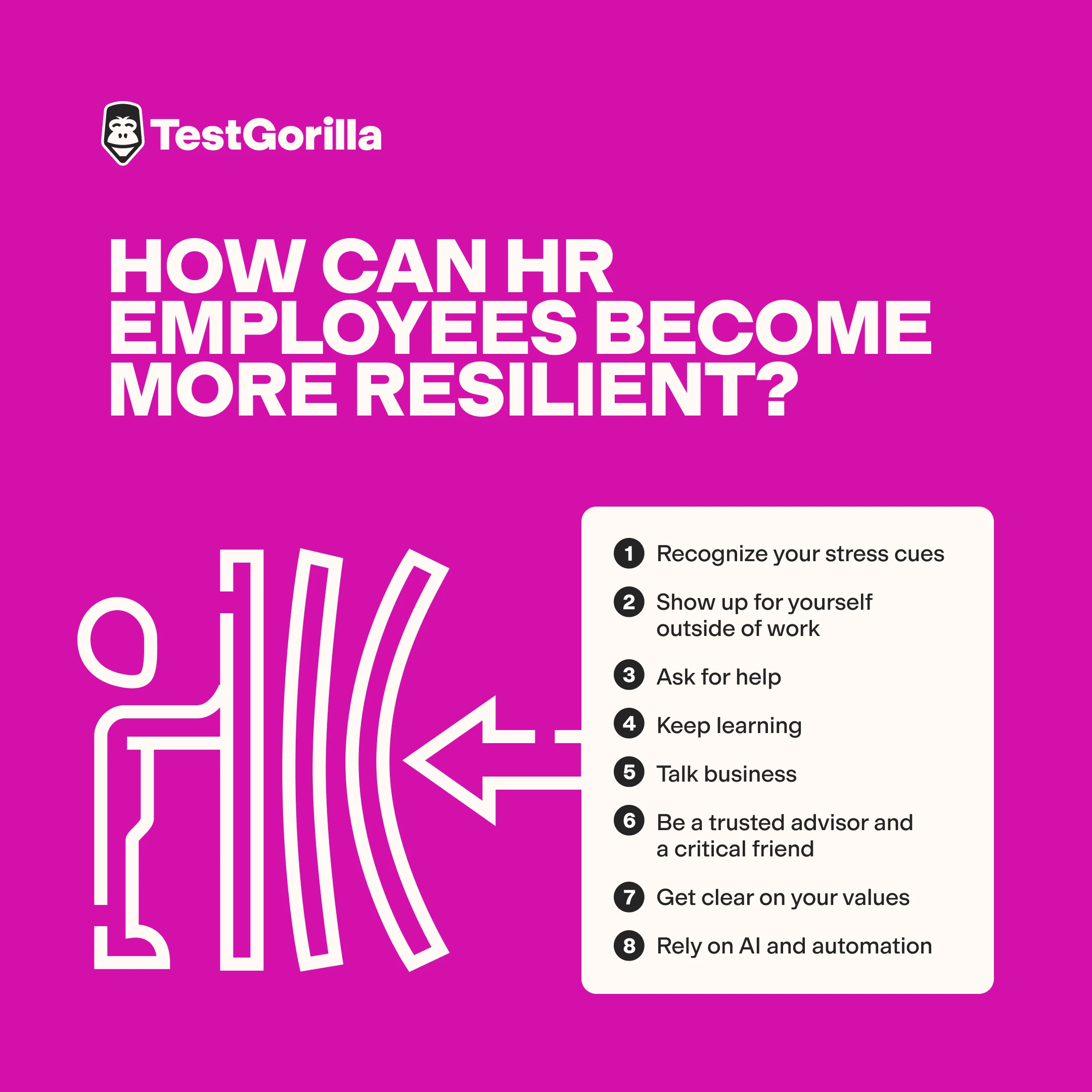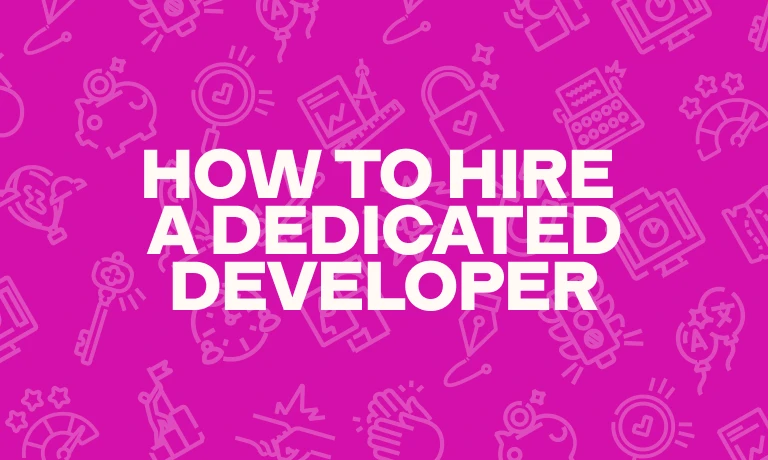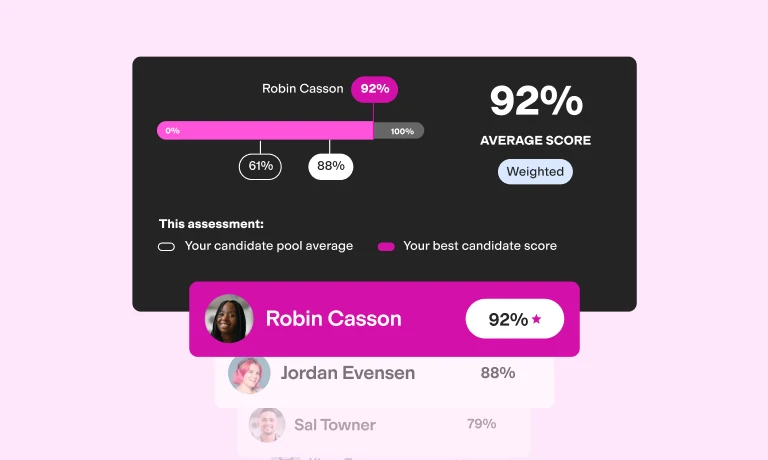Exposing HR's biggest hurdles with burnout and resilience coach Kirsty Baggs-Morgan
"It's funny – we often don't get treated like the other employees in the organization because we're supposed to fix things for other people. If we're off sick, nobody knows what to do. If we need access to work support, nobody knows what to do because we're the ones that do that."
These are the words of Kirsty Baggs-Morgan, an HR leader with 25 years of experience in the industry. She’s also a resilience coach – so when it comes to understanding the challenges HR folks face, she really knows her stuff.
I sat down with her to better understand what’s going on, how HR professionals can navigate stress and burnout, and to grab some top tips on building resilience in HR. Whether you’re an HR professional or a company leader looking to support your HR team, these pointers are worth a read.
First thing’s first: HR professionals face a major perception problem
If you’re not in HR, this is probably not something you’ve noticed – but HR professionals face a serious perception problem. For Kirsty, this is something that she sees consistently, and it raises serious difficulties for HR leaders.
"There are so many different perceptions of what HR is all about, what we should be focused on, what we're there to do. And that's one of the biggest battles that we have in our careers. You're constantly coming up against people who think you're there to organize the Christmas party, or that think your job is to make everyone happy. And no, actually, it isn't. "
She tells me, “you go into a new organization, and if you've got a really strategic thinking CEO who has worked with great HR professionals in the past and sees the value it can create for the business, then brilliant. But if not, if you're working with somebody who thinks you're there to make the tea, then that's really difficult. And that’s what you're up against.”
Misperceptions breed impostor syndrome
If that's really what companies view HR as – the people who make the tea and organize the parties – then this is breeding ground for impostor syndrome. It’s exhausting to show up every day and convince people that you have a bigger role to play.
Kirsty spent 25 years in financial services where there was, in her words, “a lot of shouting.” She tells me: “I personally always really struggled with things like impostor syndrome. I was very introverted, very shy. I had to work with a number of pretty tough individuals, such is the nature of financial services sometimes. I often felt that I was talked down to, and shouted at a lot. There was a lot of shouting.”
These misperceptions could also mean HR professionals are the first to be let go during layoffs. In fact, 28% (the largest group) of the big tech layoffs from 2023 were HR employees.
“I was let go from my job at the end of 2018 and it absolutely floored me. My confidence hit rock bottom. I had placed so much of my self-worth in my career that when that went away, when that job went away, I didn't know who I was. I didn't know what the heck I was going to do next. And I was just, you know, at my lowest ebb, like zero confidence. And so everything I now do kind of came out of that.”
78% of HR professionals have experienced burnout
With this perception of HR jobs, you'd think there'd be a lighter load on HR professionals' shoulders. But this couldn't be further from the truth. "The breadth of HR work is continuously expanding, and we're expected to be ahead of it. Not just on top of it, but ahead of it."
“There's no surprise that the burnout statistics that we're seeing in HR professionals are so high. I did an HR well-being survey at the end of last year, and 78% of respondents said they’ve experienced burnout either once or more than once,” she tells me.
“It’s crazy. About 30% said they’ve experienced it more than once, and that just blows my mind. So, clearly, these are huge, huge challenges. I think that the lack of support, the lack of budget, but also increased expectations means that people are kind of reaching their limits.”
Neurodivergent HR professionals face additional challenges
“I have ADHD, I got diagnosed at 50, and I’ve been on a journey with it. I have a community called AD(HR)D (see what I did there!?) for HR professionals with ADHD. It's difficult to be the one that has the issue and needs support because we are the ones that help others. So what I found is that a lot of HR professionals aren't even comfortable telling anyone at work that they have ADHD, or that they're neurodivergent.”
HR employees tend to flip-flop between working on extremely admin-heavy and routine tasks and handling super-sensitive topics. We know that workplaces can be unaccommodating to neurodivergent adults at the best of times, but, in Kirsty’s experience, ADHD can show up in ways that makes HR even harder.
“We have interest-based brains. So if something is new or interesting or easy, we will fly through it. But if you give us something that’s difficult or boring, we’ll just put it off. Like sometimes you don't even register that it's there to be done.”
“With a lot of repetitive HR administrative work, I've talked to people who are like, I'm so far behind with this and no one knows because I just don't want to do it. So we have these conversations around the different techniques that you can use to kind of balance your workload. I do body doubling all the time just to get sh*t done.”
The best insights on HR and recruitment, delivered to your inbox.
Biweekly updates. No spam. Unsubscribe any time.
Kirsty's biggest needle movers for building resilience in HR
It’s clear that there’s a problem to solve. HR professionals don't get taken as seriously as they should; they are misunderstood, overworked, and most of them have experienced burnout at least once.
What can we do about it? Can we change leaders' perceptions of HR overnight? Probably not. But can HR employees become more resilient, change the narrative, and find the support they need? Yes indeed.
This is the crux of Kirsty’s work now. “Resilience is more complex than I think a lot of people realize. But there are many different ways that we can boost our resilience, or that we can show resilience.” Here are her biggest needle-movers.
Recognize your stress cues
“Looking after yourself physically, mentally, looking after your nutrition, getting good sleep – all of those sorts of things help to reduce stress. We know this. But I think they're also the first things that go out the window when we do feel stressed.”
“What helps me is to be aware of what your own stress responses look like. For me, if I'm stressed, the first thing that goes wrong is my skin goes – I'll have a breakout or something. For somebody else it might be that they’re not sleeping properly. Recognizing your cues goes a long way.”
Show up for yourself outside of work
“I've got an old coaching client who works as a global head of HR for a big timber firm in the Northwest. I look at how she's doing in her career now and how in her role, and she's made an enormous difference in that organization. And I noticed that it coincided with her own journey to fitness, and running, and all of those sorts of things.”
“She’s looking after herself outside of work and it's showing up in her work as well, which is interesting. It's like we don't think necessarily that it would make a difference, but it does. I think there’s a lesson there. If one part of you is healthy and positive, then it's easier for the rest to be.”
Ask for help
HR finds it hard to ask for help, even more so in standalone HR jobs. "Just because you're standalone doesn't mean you have to stand alone," Kirsty says.
"We have a tendency towards struggling on our own without asking for help because if we ask for help, then people think we can't do our jobs and that we don't know what we're talking about," she explains.
"Asking for help doesn't mean you failed. There's no one that knows everything about everything. And the sooner we get okay with that, the better."
Keep learning
“There are people doing some incredible things right now. And the people that I find can cope with the workload and the constant changes the best are the people that use their network, connect with other people, andkeep learning. Continuous learning is certainly something that helps to boost resilience.”
I found additional research to back this up. A literature review of 41 empirical studies found that organizational learning increased resilience in all three stages of change – anticipation, coping, and adaptation.
Talk business
According to a study mentioned in a recent Forbes article, 66% of business leaders still view HR as a purely administrative function.
We need to change that narrative. Here’s Kirsty’s advice: "Learn everything you can about your organization – how it works, what it's trying to be or do, and when it's trying to do it. Because as HR staff, sometimes we don't ask enough of those questions.”
"Don't just talk about HR. People aren't interested. If they don't work in HR, they're not interested in HR. You need to talk about the business."
“If you're working in conjunction with the senior leadership in the business to achieve the business’s goals together, that's like the holy grail for HR. And so many of us just don't get that opportunity because either people don't think that we should be in the conversation, or we don't understand it well enough to be in the conversation.”
Be a trusted advisor and a critical friend
“In terms of how we make the biggest impact, I think it comes down to having a really good relationship with senior leadership in your organization. A client of mine once described her relationship with her CEO as being their trusted adviser and critical friend. And I use that a lot, because that's where you want to get to if you want to be successful at a strategic level.”
Get clear on your values
“Something felt off with me for a while in that job that I got let go from, and I only realized what it was six months later. It felt off because it was so misaligned with my personal values. I think it happens a lot – we have this sense of something not feeling right. We don’t like it, or it doesn't feel right, or we don’t fit. So that should be the first piece of your self-awareness journey: Get clear on what your values are. Actually give them words, articulate them.”
“My biggest one is authenticity. What you see is what you get, I'm never going to be intentionally rude to people. But I'm so tired of tiptoeing around difficult people. And nowadays I'm much more able to go, ‘please just lower your voice. Don't shout. Don't talk to me like that.’”
Rely on AI and automation
Kirsty sees AI as an opportunity for HR people to do their best work. “I would like to see an HR profession where the vast majority of people operations work is automated, because that's an area where less of a human touch is needed.”
It’s in professionals’ interests to become AI proficient. “I think AI is going to bring a huge opportunity for us to do the kind of work that we've always wanted to do. Where we can really add value and drive organizations forward, rather than being caught up with all of the administrative stuff. That would be nice.”
Will you build your resilience and change the narrative?
HR professionals are at risk of stress, burnout, imposter syndrome, and so much more. But it's time to change the narrative.
Kirsty Baggs-Morgan has been there, and done that. She’s even got the t-shirt. Now, her platform and community Evolving HR is helping HR peers build resilience, become strategic partners in their businesses, and stay true to their values.
Keen on joining the community? There are just three criteria you must meet:
Favor collaboration over competition.
Be passionate about what you do or the problem you're solving for people
Don’t be an a**hole. This one's non-negotiable. 😉
Sound like you? Check out Kirsty's LinkedIn page or website to reach out. And if you enjoyed this interview piece, check out some others from our content library:
Related posts
You've scrolled this far
Why not try TestGorilla for free, and see what happens when you put skills first.




















